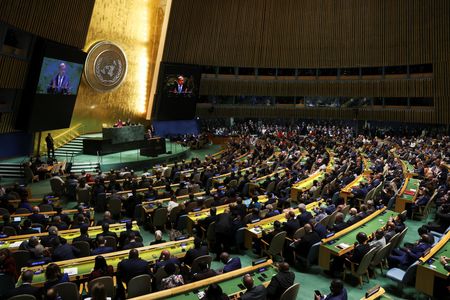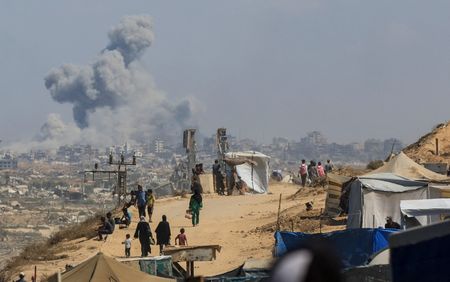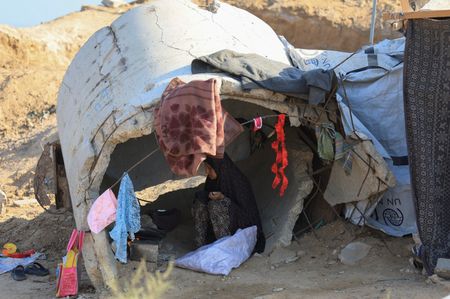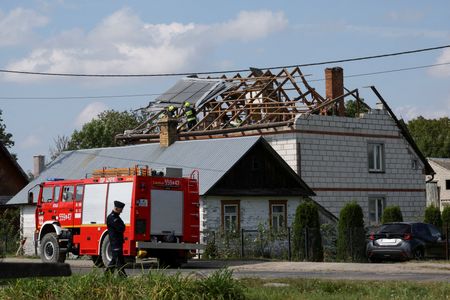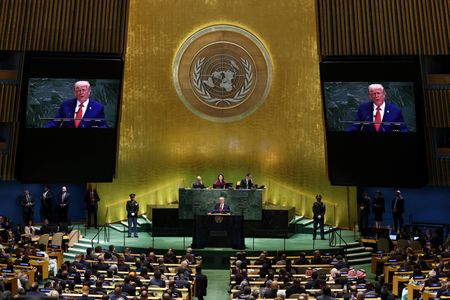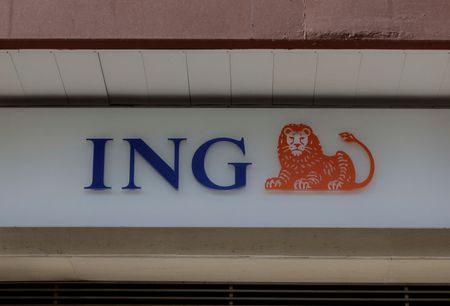By Doyinsola Oladipo
NEW YORK (Reuters) -In its 80-year history, the United Nations has never had a woman serve as secretary-general — a fact that some world leaders now view as a glaring symbol of gender inequality at the highest level of global diplomacy.
With Secretary-General Antonio Guterres due to complete his second five-year term at the end of 2026, some at this week’s annual U.N. General Assembly were vocal in their call for a woman to assume the role.
“It is high time for a woman to be chosen as U.N. Secretary-General,” said Estonia’s President Alar Karis.
“We need to put forward ambitious selection criteria, a clear timeline and assure greater role of the General Assembly in this process. Given the current credibility crisis of the U.N., we cannot afford to fall short in the selection process.”
All nine of those to hold the top job have been men.
‘LET’S MAKE HISTORY,’ SAYS SLOVENIA’S PRESIDENT
Slovenia’s President Nataša Pirc Musar lamented that only five women have held the year-long presidency of the now 193-member General Assembly, including this year.
“By the end of this session, she should be joined by a Madam Secretary-General-elect,” Pirc Musar said. “Let’s make history,” she added.
The 15-member Security Council, including permanent veto powers Britain, China, France, Russia and the United States considers an undisclosed list behind closed doors and recommends a candidate to be elected by the General Assembly.
To boost transparency, the General Assembly in 2015 asked its president and that of the Security Council to invite U.N. members to nominate candidates. It also called for regular circulation of candidates’ names and CVs to member states.
Mongolia’s President Ukhnaagiin Khürelsükh said: “Ensuring gender equality in senior leadership positions within the United Nations will undoubtedly have a positive impact on fostering more transparent, balanced and inclusive decision-making processes.”
The next U.N. Secretary-General will be chosen in 2026 to begin their term on January 1, 2027.
GEOGRAPHICAL DIVERSITY A KEY TO THE APPOINTMENT
Although the job traditionally rotates among regions, when Guterres, who is from Portugal, was elected in 2016, it was supposed to be Eastern Europe’s turn. Next on the list is Latin America, but some diplomats expect candidates from other regions.
“Our region has the diversity, capacity and experience to be able to raise a strong voice for peace, climate justice, human rights, and sustainable development,” said Dominican Republic President Luis Abinader.
“I am fully convinced that the time has come for a woman to take up the post,” said the president of the Spanish-speaking Caribbean nation.
Chilean President Gabriel Boric said that regional balance must be respected in the appointment process and recommended former Chilean President Michelle Bachelet to the role.
“I firmly believe, and I know that this conviction is shared by my nation, that Michelle Bachelet is someone able to build bridges between the North and the South, between the East and the West,” Boric said as Bachelet watched on from the audience.
Bachelet was Chile’s first female head of state and served as president of the South American nation twice. She was also Chile’s minister for health and defense. Bachelet has also been the executive director of U.N. Women and U.N. High Commissioner for Human Rights.
“It’s time for Latin America and the Caribbean to have their moment,” he said, adding that the region is free of war and rich in diplomatic tradition.
International Atomic Energy Agency chief Rafael Grossi, who is Argentinian, has said he plans to seek the job.
(Doyinsola Oladipo and Michelle Nichols in New York; Editing by Howard Goller)

